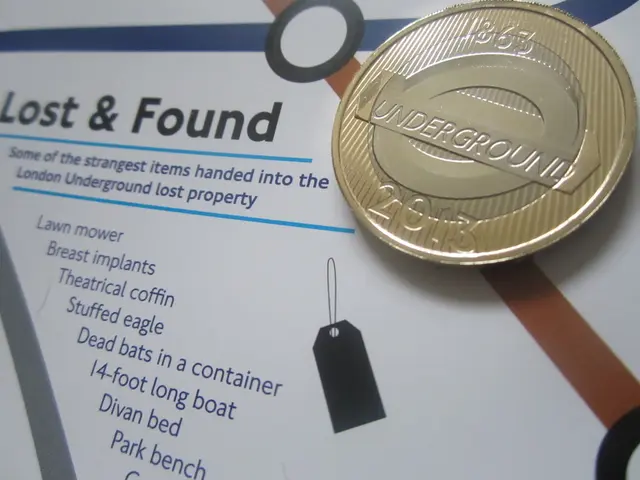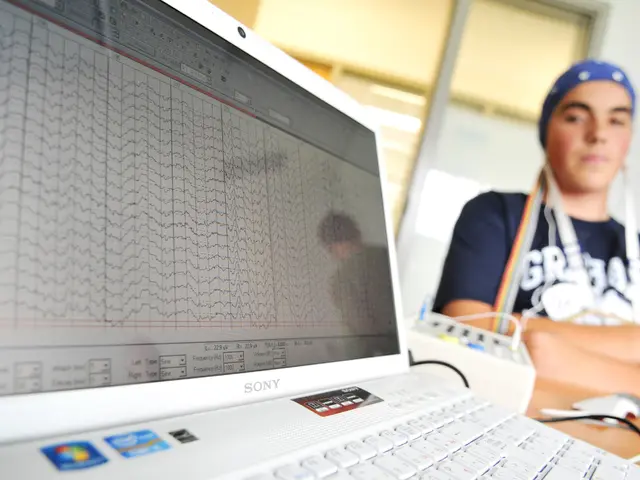Investment titan Legal & General intends to pour billions into European data center infrastructure.
Private Investors Amplify Europe's Push for Digital Independence from the US
Prominent private investors are significantly bolstering Europe's growing autonomy in the digital realm, aiming to lessen its reliance on US technology. The UK's asset management heavyweight, L&G (formerly Legal & General Investment Management), plans to raise investments in this sector from €400 million to €4 billion over the coming years, as revealed by Matteo Colombo, Managing Director for Digital Infrastructure Investing at L&G Asset Management, in an interview with Börsen-Zeitung.
L&G, a subsidiary of the insurance titan Legal & General, is one of the biggest asset managers for institutional investors, controlling €1.3 trillion in assets. The firm invests around €68 billion in private markets alone, focusing on real estate, private credit, and venture capital, all funded by its own balance sheet. In digital infrastructure, L&G concentrates on data centers, cell towers, and fiber optics.
Partnerships with developers like Kao Data are part of L&G's strategy. A UK-based specialist in high-performance data centers, Kao Data recently started construction on a 40-megawatt data center in Manchester, at a cost of £350 million - the largest such facility in Northern England. L&G has also received planning approval for a €750 million investment in a hyperscale data center in the London borough of Newham, in partnership with Goldacre and SineQN.
The trend towards localizing data storage across Europe is driving L&G's investments, with plans to invest in Germany as well. Innovations in artificial intelligence, such as those from DeepSeek, are further accelerating these plans. Private equity firm Tikehau's recent acquisition of Frankfurt-based data center planning firm TTSP HWP, and BlackRock's acquisition of a majority stake in Frankfurt-based Mainova data center subsidiary WebHouse, reflect increasing private sector interest in Europe's digital landscape.
A persistent challenge in Germany is the relatively low spread of fiber-optic networks compared to other European countries, due to dependence on copper-based technologies. While the number of households connected to fiber has increased, usage remains lower than in countries like Spain and France, according to Colombo. Spain aims to shut down most copper networks by 2025. Fiber-optic cables are preferred in digital infrastructure due to their superior speed, bandwidth, energy efficiency, and resistance to electromagnetic interference.
Replacing old copper networks with modern fiber-optic cables could significantly contribute to the development of digital infrastructure and services, not only for data centers but also for the digitalization of society as a whole, believes Colombo. The German Federal Network Agency is advocating for a voluntary, large-scale migration from copper to fiber household connections by the early 2030s, soliciting input from market participants on the transition.
As Europe continues its pursuit of digital independence from the US, it still faces significant challenges and remains in a transitional phase. The region is making substantial strides, with initiatives like EuroStack, Gaia-X, and IRIS², and policy efforts aimed at fostering AI leadership and digital sovereignty. However, US dominance in cloud infrastructure persists, with Europe controlling only a modest share of this critical digital domain. Private investment, including from prominent firms such as L&G, is crucial in this transformation, though precise recent figures on their contributions to digital infrastructure are not explicitly detailed in current reports. The trajectory suggests growing pressure and efforts to lessen dependence on foreign technology through coordinated industrial strategies and expanded local investment.
L&G, with its planned increase in investments in digital infrastructure from €400 million to €4 billion, is employing technology to amplify Europe's digital landscape, focusing on areas such as data centers, cell towers, and fiber optics. As the push for digital independence from the US continues, private equity firms like Tikehau and BlackRock's acquisitions of data center specialists demonstrate a growing interest in Europe's technology sector.




